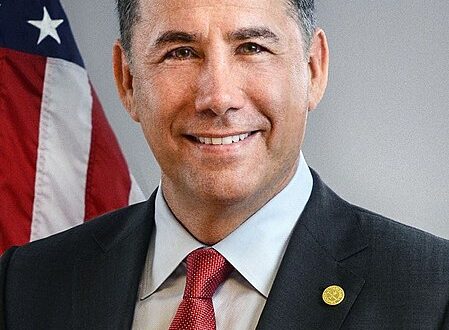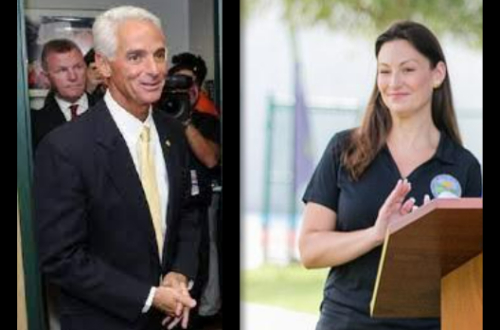The season to qualify for 2022 Florida midterm elections has officially ended, bringing much relief to statewide organizers and staff. However, Florida voters may not have as many choices as they might expect.
As the public considers to whom they will entrust their vote, many will realize they only have one party to choose from. Specifically, several races lack a Democratic contender, according to one group of organizers unofficially called “Blue on the Ballot.”
Jackson McMillan, a Florida organizer, is part of the Blue on the Ballot team, which actively works to get new candidates to challenge unopposed seats and helps launch their campaigns.
About a month ago, the team discovered around 60 different seats throughout the state being left uncontested by Democrats, McMillan told the Florida Political Review. Soon after, they quickly gathered information and started a campaign to spread the word about the issue.
They utilized platforms like Tiktok, Reddit, local Facebook groups, Twitter and some personal contacts, McMillan said. By using social media platforms, they “went to spaces that are not normal for fundraising because they want just normal people,” making it easier to get applicants for races.
Within a short time of communicating their project, Blue on the Ballot received over 100 applicants to run for the unopposed seats. After narrowing down the applicant field, they identified 53 potential candidates that exhibited what they considered to be the proper qualifications to run for a seat.
Before the last qualifying date for candidacy on June 17, McMillan was unsure how many people they would be able to get on the ballot. McMillan said “that [Blue on the Ballot] was very honest with themselves about how much they would be able to achieve in just a few weeks.”
However, they believed that filling at least one uncontested seat was a win.
Many factors make it difficult to get candidates qualified, especially in a short amount of time. There were two major factors Blue on the Ballot had to confront in getting their candidates on the ballot: the realization of the amount of work that goes into running for office by new potential candidates and the hurdle of filing fees.
Filing fees can be up to $500, depending on the specific seat a candidate is running for in the Florida Legislature. These fees can be challenging to pay in a short amount of time, and in the case of Blue on the Ballot’s initiative, many of the candidates had few days to gather funds.
While fees have been a challenge for Blue on the Ballot candidates, McMillan’s group has worked hard to aid them the best they can. They raised over $5,000 from various sources to donate to these candidates. According to McMillan, 100% of the money raised goes to the candidates — the organizers do not keep any or charge the candidates.
Although the group raised money for filing fees, there are still many months before the Florida midterm elections, meaning many candidates will need donations to get their campaigns off the ground and run a competitive race.
McMillan said there wasn’t much support coming from the Democratic Party. Hesitation has been seen on a national scale to give the Florida Democratic Party the large funds many organizers would like to see. Lack of communication and planning are other issues that have arisen within the party.
McMillan attested to the idea that communication was the party’s biggest issue, saying it was a leading cause of why there were so many uncontested seats for this year’s Florida midterms.
“Once people knew there was a problem, they rushed to help. But if people didn’t know there was a problem, no one would help,” McMillan said.
The uncontested seats in the Florida Legislature beg the question: is this only an issue for Democrats? McMillan says yes.
“The Republican Party operates like a machine, while the Democratic Party operates like a bunch of city-states,” McMillan said.
After the qualifying period ended, there were 49 uncontested seats in the Legislature — about 40% of all seats available. The qualifying results also showcased 20 uncontested seats by the Republican Party – about 16% of all seats available.
Chair of the Florida Redistricting Committee Tom Leek, R-Volusia, told Florida Political Review Republicans don’t frequently put candidates in races located in heavily Democrat-leaning districts like Broward County, as it doesn’t advance a political cause.
Leek also said the premise that it is better to have candidates with varying political viewpoints on the ballot to demonstrate differing policy perspectives is “faulty.” He said it fails to consider if each candidate will have the ability to get out their policy message and have a fair chance to win an election.
Even though there are several uncontested Republican elections, Democratic voters fear Democrats on the ballot who are not able to communicate effectively or rally support may lose elections. McMillan said, however, that the lack of competition creates less involvement in local elections and may discourage people from voting.
Political geography seems to play an important role in determining Florida elections. Leek said a large reason there are so many uncontested elections is because of the number of Republicans and Democrats in the state.
As of the end of May, over 5,135,000 Republicans and 4,959,000 Democrats are registered to vote in Florida, according to the Florida Division of Elections. Leek said that if someone in the Florida Legislature was elected without opposition, it’s likely because the partisan makeup of their district heavily favored one side over the other.
Although qualifying has ended, Blue on the Ballot hopes this year’s efforts will pave the way for future election years. They plan to aid in long-term structural support for the future of the Democratic Party as they continue to grow.
Check out other recent articles from the Florida Political Review here.
Featured image: Photo of The Florida State Capital. Unmodified photo by Micheal Rivera used under a Creative Commons license. (https://bit.ly/3I39UeU)





